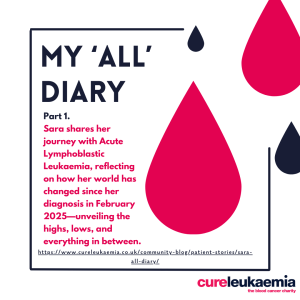Gwen from Sheffield shares her personal experience with her myelofibrosis diagnosis.
Gwen Gough, 70, was diagnosed with myelofibrosis, a rare type of blood cancer where scar tissue builds up inside the bone marrow disrupting the development of normal blood cells, just after Christmas last year.
Although there is no cure for the condition, her doctors at the Royal Hallamshire Hospital, in Sheffield, told her the condition could be treated, and she was enrolled into a promising new trial.
The trial targets a specific change in a gene called JAK2, found in more than 55% of people with myelofibrosis. This gene makes a protein that controls how many blood cells your body makes. During the trial, researchers are looking to see if a drug known as a JAK2 inhibitor, or a cancer growth blocker, can slow or stop the growth of cancer cells when used in combination with a type of immunotherapy. They also receive a new innovative formulation of interferon not currently available on the NHS. The combination can potentially improve quality of life. Patients on the trial also receive standard care, including regular blood transfusions.
Over 300 patients in the UK are diagnosed with myelofibrosis, which causes debilitating symptoms including extreme fatigue, pain, weakness and shortness of breath.
Speaking about her care, Gwen, a grandmother of six, said:
“I’d never heard of myelofibrosis, and I wasn’t as shocked as I thought I would be when I was diagnosed, but it put my mind at rest when I found out it was treatable. If my haemoglobin goes low, I can sometimes feel short of breath and my legs feel heavy, but I just get on with it.
“The trial is working for me, it’s put my disease under control. The care I’ve received from the doctors, nurses and phlebotomists has been marvellous – nothing is ever too much for them. They sit down and work out a plan with me and I can pick up the phone and they will answer all my questions. Trials like this give hope to people like me as hopefully they will save lives in the future.”
The only potential curative therapy for myelofibrosis is a stem cell transplant. However, this is an intensive treatment which is only suitable for a small minority of younger patients who do not have other conditions.
Photo: Tasha Morley, Haematology/Oncology Research Nurse at the Royal Hallamshire Hospital with patient Gwen Gough





